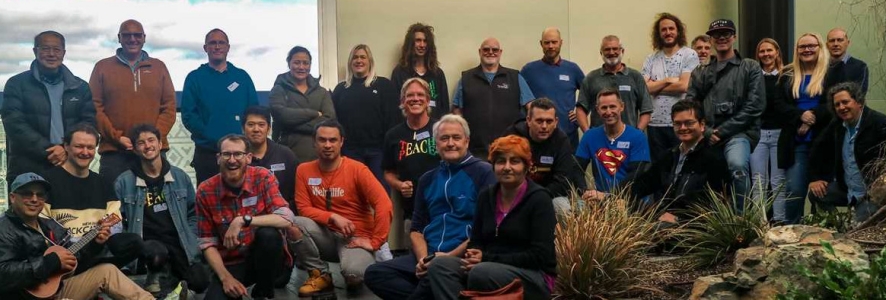Men involved in early childhood education are calling for the Government to address the lack of male teachers in New Zealand.
Ministry of Education figures from October 2008 show just 1.3 per cent of early childhood teachers are men, which is the lowest rate among developed countries.
Chairman of Early Childhood Men New Zealand (EC-MENz) Russell Ballantyne says the Government needs to put more money into recruiting male teachers.
EC-MENz is an independent organisation seeking to create and maintain “male friendly” early childhood centres in New Zealand.
“The interesting thing is parents are really supportive, teachers are really supportive, some major organisations are very supportive, but when we get to the Ministry we hit a brick wall,” says Ballantyne.
He believes the Ministry could make the biggest difference, but lacks commitment.
“What research is saying is that men need to be invited into the sector. We need some messages out there saying, ‘Guys have you considered teaching? Because there’s a real place for you’. But for some reason in New Zealand it’s too politically hot for them [the Ministry] to do that.”
Ballantyne says he is surprised at the lack of support because the Ministry has been saying for the last year they don’t have enough teachers to meet the targets.
“You would think at that stage the Government would say, ‘Hey, hang on, we’ve got one of the lowest representation of men in the world teaching in our sector. Let’s enhance the workforce and see if we can get some teachers from there’. But no it’s too difficult for them. They don’t want to be seen doing that,” says Ballantyne.
According to the Ministry of Education, research shows the key factor that makes a difference to a child’s leaning is the quality of the teaching, not the gender of the teacher.
Nonetheless, group manager for Early Childhood Education Karl Le Quesne, says the ministry has tried to encourage more men into early childhood teaching through Teach NZ.
He says Teach NZ produced a promotional DVD called We need more men in early childhood teaching to help promote early childhood teaching as a career for men.
Le Quesne says the number of men working in early childhood education has increased from 59 in 2004, to more than 100 in 2008.
But in a report from an EC-MENz summit in February, Ministry of Education senior policy manager Richard Walley pointed out that while the number of male teachers has doubled, it’s made little difference because the proportion of female teachers has also increased.
Ballantyne says he acknowledges Teach NZ put out a DVD. But, he says it was request only, and it’s no longer being produced.
Ballantyne says there is also no work put into high schools to say it’s a [career] possibility and we need good men to work with our children.
Early Childhood Council chief executive Dr Sarah Farquhar says she believes recognising other qualifications, like primary school teaching, could attract more men to the field as well.
“It’s a side issue but it would be a big bonus for many of our children because 50 per cent of our children are boys,” she says.
Farquhar says in other countries men see they can play a role in childcare so it’s easier to recruit men.
“It’s still seen as women’s work in New Zealand. It’s up to us to try and make it more attractive.”
However, early childhood teacher and Auckland representative for EC-MENz Adam Buckingham says he doesn’t believe the qualification should be diluted.
“Primary school teachers still need to do that one-year because we do a lot more on human development than primary school teachers,” he says,
He says there is the odd parent who doesn’t accept it, and will either say something or move their child, but largely it’s accepted now.
Buckingham says children need to see that men can nurture and care too.
“A lot of children only see negative things, they don’t see that we can actually do it too.”
Buckingham says EC-MENz hopes to increase their representation by 10 per cent within a decade.
“I would love to see a few more men involved in early childhood, but I don’t think this will happen quickly. Public kindy is really lacking volunteers at the moment, people don’t seem to have time for children anymore like they used to. We are really losing that family value.”


